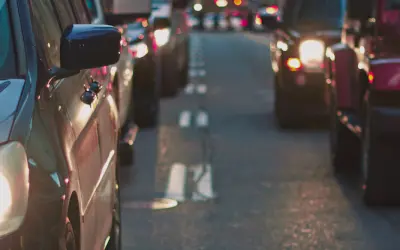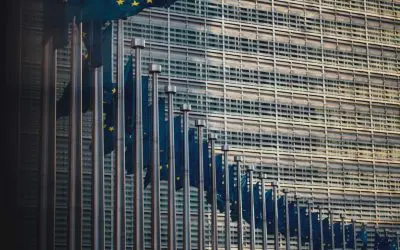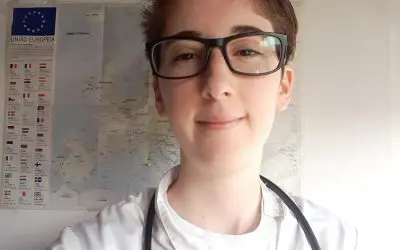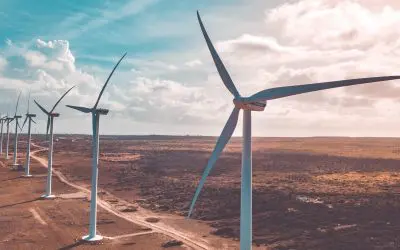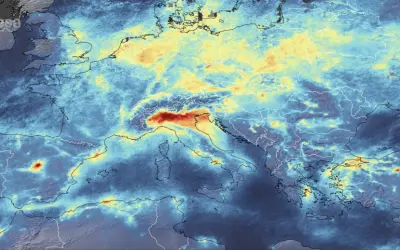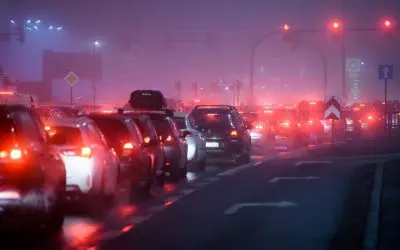On September 22, The World Health Organization (WHO) updated its global air quality guidelines. This important document recommends air quality limits as well as interim targets for key pollutants. It also provides clear evidence of the damage air pollution inflicts on human health, even at low concentrations.
The earlier guidelines date back to 2005 and their revision was highly anticipated by the health community. Although not legally binding, the new WHO Global Air Quality Guidelines set the standards for policymaking.
The WHO tightened its standards for 6 pollutants: particulate matter (PM₁₀ and PM₂.₅), ozone (O₃), nitrogen dioxide (NO₂) sulfur dioxide (SO₂) and carbon monoxide (CO). When action is taken on these so-called classical pollutants, it also has an impact on other damaging pollutants.
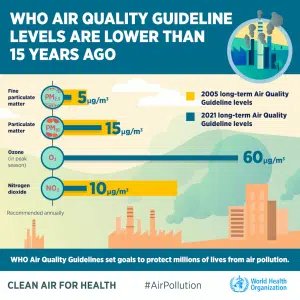
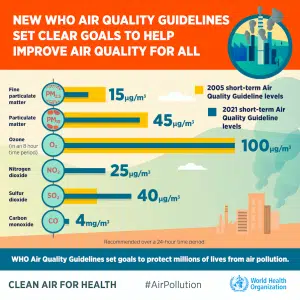
Source: WHO
Current EU standards are less ambitious than scientific advice from the WHO.
Now, the recommended levels of PM₂.₅ are to not exceed an annual concentration of 5 micrograms per cubic meter (µg/m3), five times lower than the EU’s current emission limits. For NO₂ emissions, the WHO suggests a new annual concentration of 10 µg/m3, down from 40, which is also the EU’s current standard for the pollutant.
The new guidelines are a game-changer in the revision of the EU Ambient Air Quality Directive (AAQD).
This new European legislation can change the way we breathe and live, setting ambitious air pollutant limits. EU air quality standards have proven to be a key instrument in reducing air pollution. Yet, to protect people’s health, they must be tightened and based on the latest scientific research. The EU is currently revising its air quality standards: the European Green Deal and the EU Zero Pollution Action Plan include the commitment to align the current EU Air Quality Standards closer with WHO guidelines.
Yet, diseases and premature deaths can be significantly reduced only by fully aligning the EU standards with the 2021 WHO Global Air Quality Guidelines levels as soon as possible, by 2030 at the latest. These new EU standards must be legally-binding and force national governments to act for better air quality. It is also important to further harmonise monitoring, modelling, and air quality plans in the European Member States.
To tackle air pollutants currently not included under the EU’s standards, such as mercury (Hg), black carbon, ultrafine particles (PM0.1) and ammonia (NH3), new air quality standards and monitoring requirements should be introduced.
It is a matter of life or death. An estimated 500,000 premature deaths are attributed to poor air quality in the WHO Europe region every year. A statement issued by the European Respiratory Society together and endorsed by over 100 medical, public health, and scientific societies including EPHA was issued on Wednesday 22 September, expressing the support and urging decision-makers to use the new guidelines as a blueprint for ambitious air quality and emission reduction policies.
The health community, and especially the Medics for Clean Air signatories, are important as they have the solution to tackle air pollution and climate crisis. Indeed, all efforts to improve air quality can enhance climate emergency mitigation (and vice-versa). Reduction or phase-out of fossil fuel combustion will reduce greenhouse gas emissions as well as health-relevant air pollutants. To achieve these WHO guideline levels, we will be both protecting health as well as mitigating the global climate crisis. Decision-makers need to listen to the science and take steps to reflect these new standards in law.
For information, the third EU Clean Air Forum will take place on 18 and 19 November 2021 in Madrid, Spain (live streaming available). The public consultation on the revision of the ambient air quality directive is available here.
